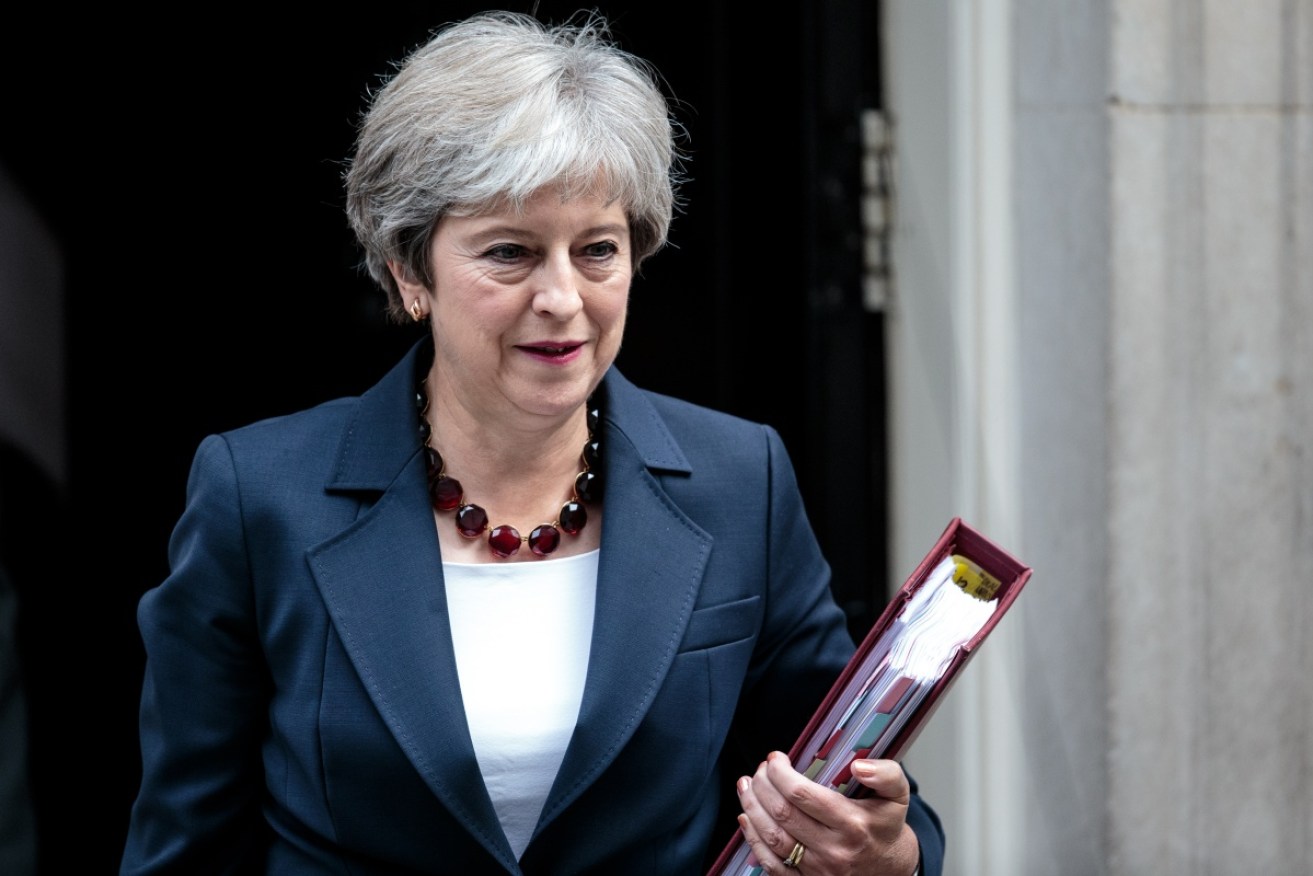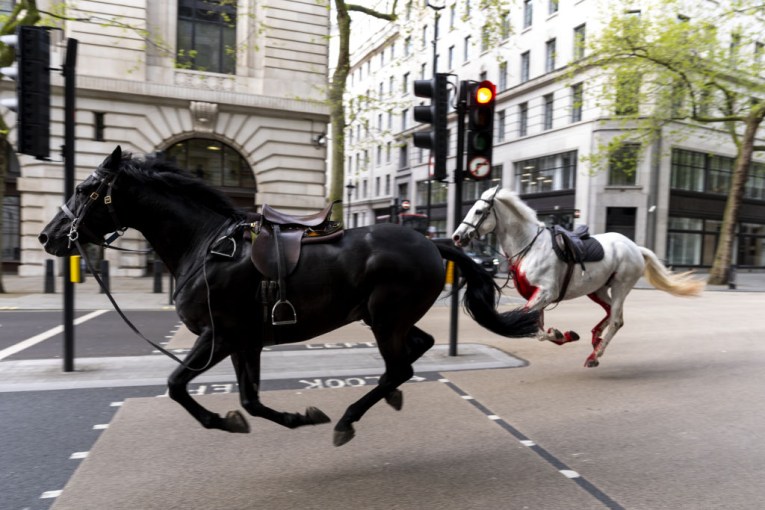Theresa May offers Brexit delay after unprecedented revolt


Ms May's backdown could rule out a no-deal Brexit. Photo: AAP
An unprecedented revolt by her own senior ministers has forced British Prime Minister Theresa May to back down and allow Parliament to remove the prospect of crashing out of the EU on March 29 with no deal with Brussels.
A “no deal” Brexit could still happen as little as three months later, with Ms May’s latest tactical fudge only serving to delay hard decisions and buy more time with what she said would be a short delay to Brexit.
Ms May had previously been adamant that Britain would leave the EU with or without a deal on March 29 as scheduled, but she was forced to backslide yesterday after 15 to 20 of her own ministers told her they would quit rather than accept what the Bank of England said yesterday would be the huge economic disruption of a “no deal” exit.
The revolt was led by Cabinet Secretaries Amber Rudd, Greg Clark and David Gauke, who were angrily labelled as “kamikaze Cabinet Ministers” by pro-Brexit Cabinet colleague Liz Truss.
The Prime Minister’s about-face came the day after her Labour rival Jeremy Corbyn had been forced by his own dissident MPs to take a harder line against Brexit and to call for a new referendum which could cancel it altogether.
Resistance from the Conservative Government and dozens of pro-Brexit Labour MPs means a new referendum remains unlikely, even though the latest polls suggest that if given the chance voters would reverse the June 2016 decision by a majority of 51.8 percent to leave the 28-member EU.

Opposition leader Jeremy Corbyn called for a second referendum on Brexit. Photo: AAP
The Government on Tuesday published a grim review of how a no-deal Brexit would hit the country, noting that “the lack of preparation by businesses and individuals is likely to add to the disruption experienced in a no deal scenario.”
By February, for example, only one sixth of the 240,000 UK businesses that trade with the EU had registered for the customs access they would need to keep importing goods from the EU.
Border delays would hit the UK’s food supply, “30 percent of which comes from the EU (but) as of February 2019, many businesses in the food supply industry are unprepared for a no deal scenario”
Ms May told the House of Commons on Tuesday that she will spend the next two weeks continuing to ask EU leaders to improve the withdrawal deal that she has negotiated with Brussels over the past two and a half years.
The House of Commons has already rejected that deal by an historic margin for fear that a future deadlock over the Northern Ireland-EU land border might leave Britain permanently stuck with some EU regulation.
The Prime Minister said that on March 12 she will allow MPs to vote again on that deal, in the hope they would accept it.
If, as expected, her deal is again rejected she would allow a vote the following day on whether to leave the EU with no deal on March 29, a prospect that is likely to be heavily defeated by MPs.
On March 14, MPs could then vote on whether to ask the EU for a short delay to Brexit to allow time to reach a new departure deal, but Ms May stressed that the extension would be a one-off lasting just a few months because new elections for the EU Parliament are due in May and if the UK does not take part it would be untenable to stay in the EU.
A resounding vote by Parliament against a no-deal departure would put pressure on both Ms May and Mr Corbyn to either reach a new deal with Brussels or hold a referendum on cancelling Brexit.
The EU is likely to delay Brexit if the UK asks, but European leaders have been adamant that they cannot make major changes to the deal they have already signed with Ms May and her government.
Conservative MP Ken Clarke, a former Cabinet Secretary who fiercely opposes Brexit, said there was no logic to Ms May’s strategy of allowing only a short delay as it would not allow time to reach a new deal with the EU let alone a majority in the House of Commons.
Leaving without an agreement “at any time would bring very damaging medium and long-term prospects for the British economy and our wellbeing (and) I doubt that she will command a majority for any such agreement in the near future.”
Conservative MP and Brexit supporter Jacob Rees-Mogg agreed that “there is no evidence that a new deal can be agreed that would be acceptable to parliament in that period.”
“So the cliff edge, if that is the term people want to use, has merely been moved back.”








